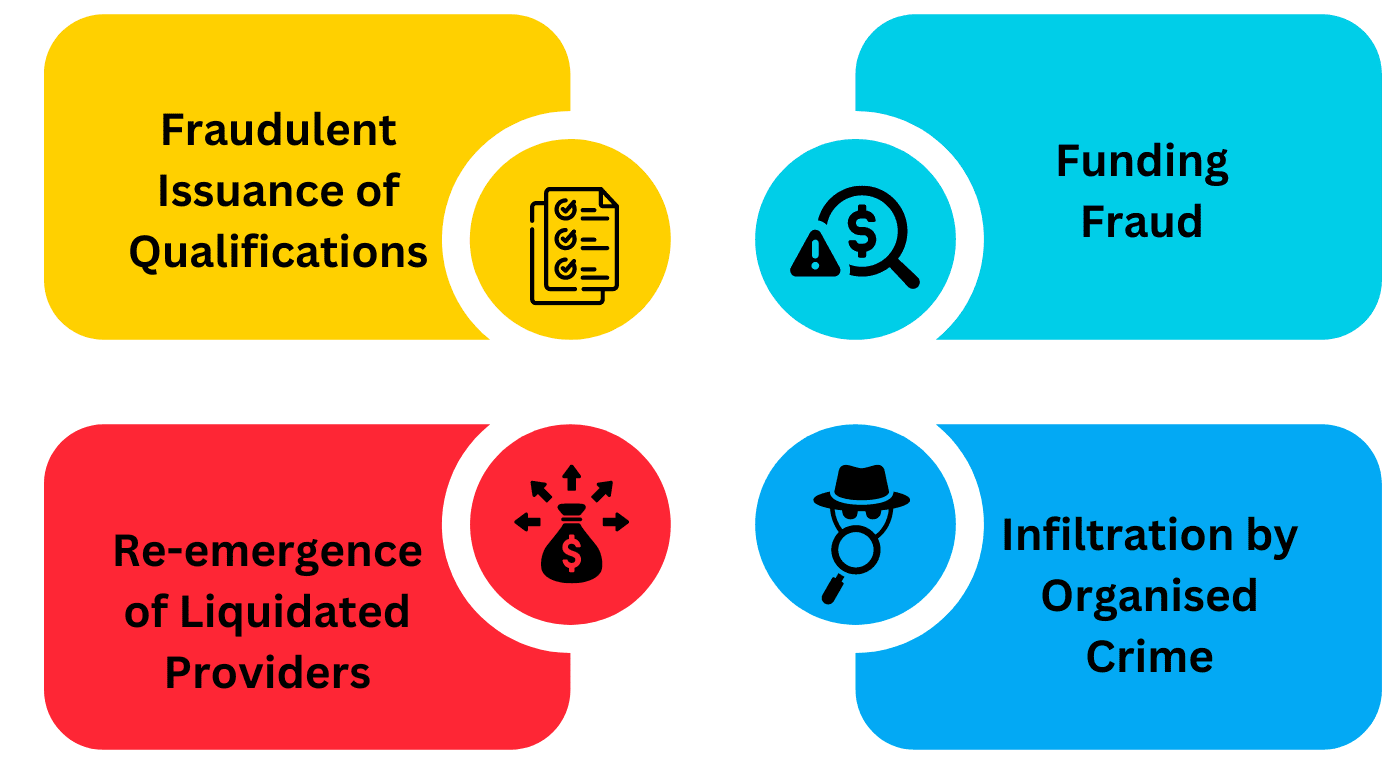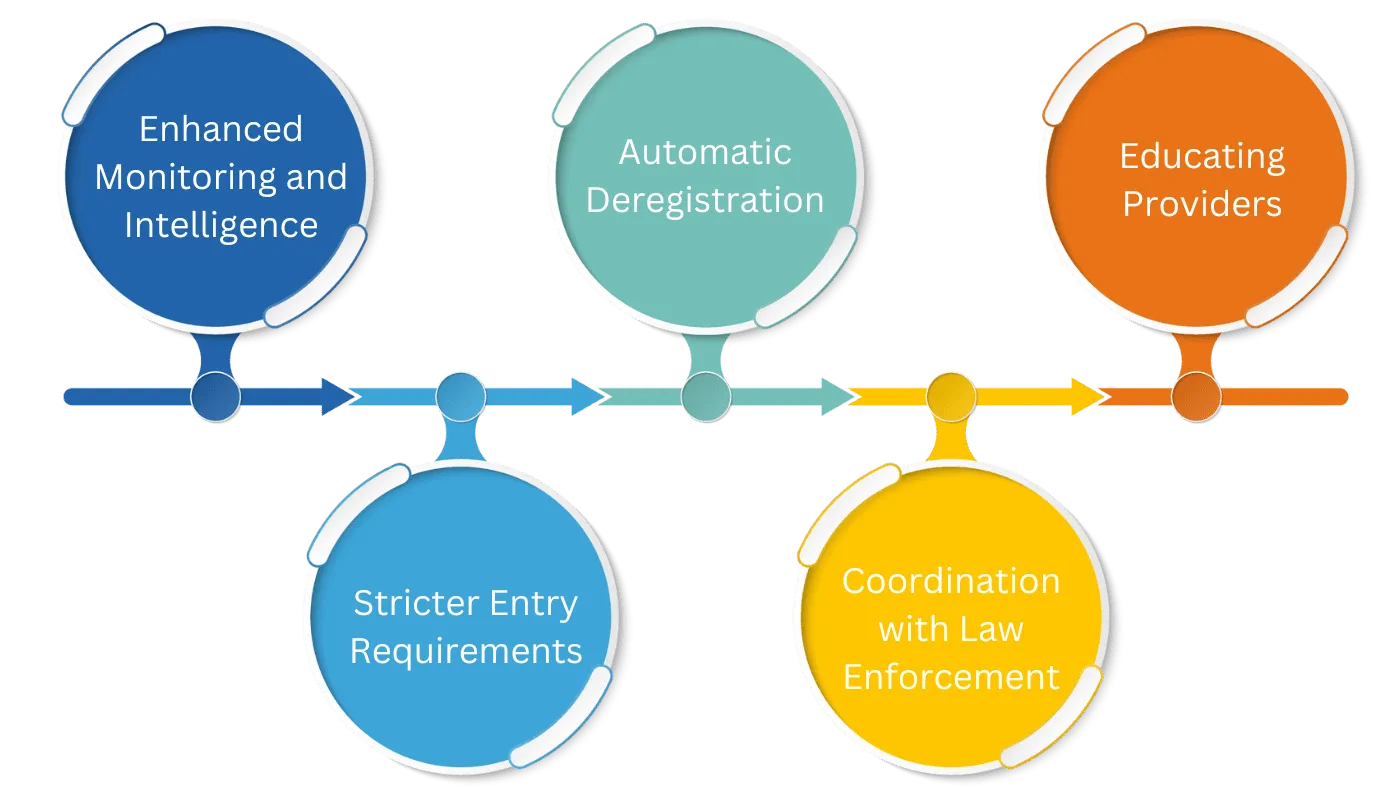Home » Tackling Non-Genuine Providers and Bad-Faith Operators in VET

The vocational education and training (VET) sector in Australia is currently facing a significant challenge: the rise of non-genuine providers and bad-faith operators. These entities not only undermine the integrity of VET but also pose serious risks to public safety and the economy.
Non-genuine providers and bad-faith operators are those who do not genuinely commit to delivering quality training and assessment. They engage in fraudulent activities, such as issuing false qualifications, committing funding fraud, or allowing unqualified individuals to occupy critical roles. This not only damages the sector’s reputation but also places students, workplaces, and the broader community at risk.

To counter these threats, the Australian Skills Quality Authority (ASQA) has ramped up its efforts to detect, disrupt, and deter illegal and unethical practices. Key measures include:

For RTOs, maintaining compliance with ASQA’s standards is crucial not just for regulatory approval but also for the safety and credibility of the entire VET sector. Providers must ensure that their operations, from governance to the delivery of training, adhere to the highest standards of integrity.
For more detailed information, you can visit ASQA’s official page on this topic here.
This response aims to ensure that only genuine, quality-focused providers thrive, safeguarding the sector’s integrity and public trust. By staying informed and vigilant, the VET community can collectively work towards a safer and more reputable educational environment.
Disclaimer:
The information presented on the VET Resources blog is for general guidance only. While we strive for accuracy, we cannot guarantee the completeness or timeliness of the information. VET Resources is not responsible for any errors or omissions, or for the results obtained from the use of this information. Always consult a professional for advice tailored to your circumstances.
Ben Thakkar is a Compliance, Training, and Business specialist in the education industry. He has held senior management roles, including General Manager, with leading Registered Training Organisations (RTOs) and Universities. With over 15 years of experience, Ben brings extensive expertise across audits, funding contracts, VET Student Loans, CRICOS, and the Standards for RTOs 2025.
Ben Thakkar Linkedin
National Australia’s Day Sale is live! 70% OFF!, Valid Till 31st Jan!
By submitting this form, you agree to the VET Resources Privacy Policy.